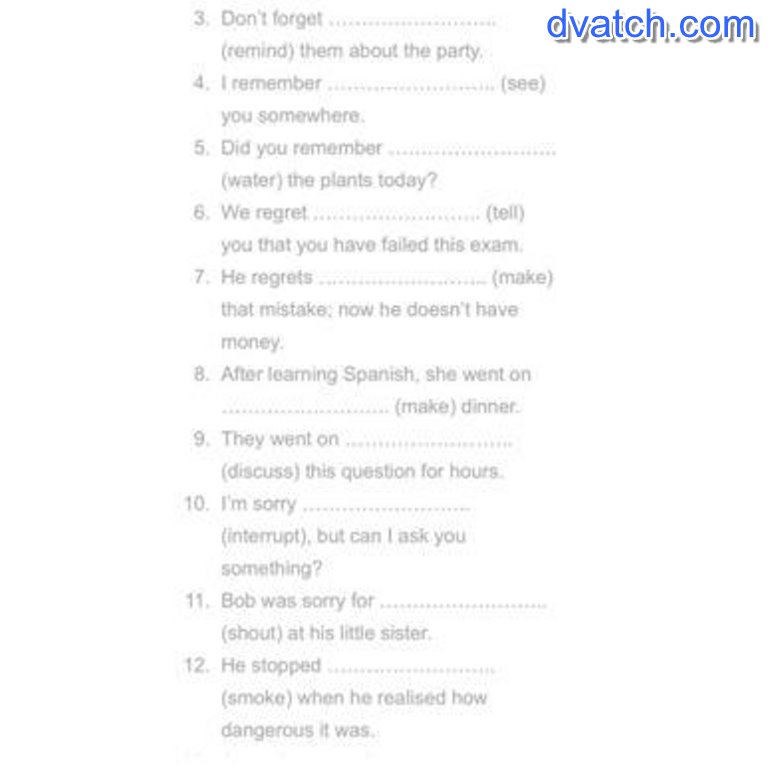 Marika
Marikaну думаю тут и так всё ясно… нужна помощь

:
Don’t forget to remind them about the party. (Remember + to + infinitive and forget + to + infinitive refer to recalling (or not recalling) that there is something we need to do before we do it. Remember + -ing and forget + -ing refer to having (or not having) a memory of something in the past. )
I remember seeing you somewhere. (The same situation as with the previous one. )
Did you remember to water the plants today? (Already explained. )
We regret to tell you that you have failed this exam. (When 'regret' is followed by the gerund you feel sorry about something you did – or didn't do - in the past. When 'regret' is followed by the infinitive, you regret something you are about to say. )
He regrets making that mistake; now he doesn’t have money. (The same situation as with the previous one. )
After learning Spanish, she went on to make dinner. (Go on + to-infinitive means to do the next action, which is often the next stage in a process. Go on + gerund means to continue with an action. )
They went on discussing this question for hours. (The same situation as with the previous one. )
I’m sorry to interrupt, but can I ask you something? (When I want to express my regret about something I am doing now I need to use the form sorry + infinitive. When I want to express my regret about something I did in the past I need to use the form sorry + verb+ing. )
Bob was sorry for shouting at his little sister. (The same as with the previous one. )
He stopped smoking when he realized how dangerous it was. (Stop + -ing means the action is not happening any more. Stop + to + infinitive means that someone or something stops an activity so that they can do something else. )
 Elizabeth Vega
Elizabeth Vega